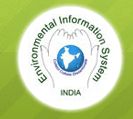Document and Data of Ministry of Environment and Forest
(2006-07) in Panchayat, Environment and Related Issues
Biodiversity Conservation Rural Living and Improvement Project (BCRLIP) – Externally Aided Project:
- Objective: The objective of the BCRLIP project is to conserve biodiversity, while improving rural livelihoods through testing and establishing decentralized participatory approaches across a range of globally and nationally important landscapes under management regimes. Consultancy services for social and environmental assessment were awarded during the year.
- An amount of Rs.104.54 lakhs was released to the States under the project as follows:
- Gujrat
- Jammu and Kashmir
- Kerala
- Madhya Pradesh
- Mizoram
- Tamil Nadu
- Uttaranchal
G.B.Pant Institute of Himalayan Environment and Development, Kosi-Katarmal, Almora: GBPIHED established August 1988 by the Ministry as an autonomous Institute has been identified as a focal agency for Research & Development on Environment and Development related issues in the Indian Himalayan Region (IHR).
- Objectives: The institute has the three broad objectives
- To undertake in-depth research and development studies on environmental problems of the Indian Himalayan Region.
- To identify and strengthen the local knowledge of the environment and contribute towards strengthening researchers of regional relevance
- To evolve and demonstrate suitable technology packages and delivery systems for sustainable development of the region in harmony with local perceptions.
- Activities undertaken so far: During the year, the targeted R&D activities of the Institute were undertaken under the following seven core programme:
- Land and Water Resource Management
- Sustainable development of Rural Ecosystem
- Conservation of Biological Diversity
- Ecological Economics and Environmental Impact Analysis
- Environmental Physiology and Biotechnology
- Institutional Networking & Human Investment
- Indigenous knowledge System (IKS)
Medicinal Plants: The implementation of an UNDP-CCF II Project “National Programme on Promoting Conservation of Medicinal Plants and Traditional Knowledge for Enhancing Health and Livelihood Security” was started in nine states viz; Karnataka, Kerala, Tamil Nadu, Andra Pradesh, Maharastra, Madhya Pradesh, Orissa, West Bengal and Rajasthan.
- Objectives: - To assist nine project states to conserve wild population of medicinal plants.
- To revitalize the indigenous health care knowledge and
- To enhance the health and livelihood security
- Progress / Achievements:
- A high level Project Manager Board (PMB) to oversee and facilitate the interdepartmental coordination and an Empowered Project Steering Committee (EPSC) to guide the implementation of the project has been constituted.
- Eight field level project components are being implemented by the respective State Forest Departments and selected NGOs, called Cooperating Agencies (CAs). The ministry has adopted a principle of atleast two components for each state and every component to be implemented in atleast two states, so as to enhance the size and impact of project implementation.
- The Project States have constituted the Project Steering Committees and have prepared work plans for their respective components. The process of identification of sites for establishing Medicinal Plants Conservation Areas (MPCAs) in four states, establishment of sustainable harvest of NTFPS and medicinal Plants in three states, need assessment for Central Seed centers in four states, capacity building for establishing Home Herbal Gardens (HHGs) and preparation of community Knowledge Registers (CKRs), have been undertaken, rapid Threat assessment exercises called Conservation and Assessment of Medicinal Plants (CAMP) workshops, as per IUCN guidelines for prioritized medicinal Plants species, are being organized in three states viz; Orissa, Rajasthan and West Bengal.
Forest Conservation: Objectives: The mandate of the Forest Conservation Division is to implement the Forest (Conservation) Act, 1980. This Act deals with grant of forestry clearances for diversion of forest lands for non-forestry purposes in respect of development projects like power, roads, railways, irrigation, mining, schools, defense, drinking water, resettlement and rehabilitation of people etc.
- Activities undertaken:
- Under Forest (Conservation) Act, since its enhancement in 1980 about 14,200 developmental projects involving about 7.00-lakh hectares forest area have been granted forestry clearance. These include the projects for power generation, irrigation, construction of roads, railway lines, transmission lines, drinking water supply projects, village electricity, schools, hospitals etc.
- To boost the development of underdeveloped area, one time clearance has been granted on January 3,2005 under Forest (Conservation) Act, 1980 for public utility developmental projects involving not more than one hectare of forest land, to be executed by Government Department namely, schools, dispensary/hospital, electric and telecommunication lines, drinking water, water/rainwater harvesting structures minor irrigation canal, on-conventional sources of energy, skill upgradation/vocational training center, power substations, communication posts and police establishments like police stations/outposts/border outposts/watch towers, in sensitive areas.
- In tribal areas, validity of general approval under Section-2 for the forest (conservation Act, 1980) has been accorded for underground laying of electric cable and wires to individual household, drinking water supply/water pipelines, telephone lines which involve felling of trees not exceeding 50 numbers per project and are laid along the road has been extended up to October 15,2007.
- To provide better means of communication and accessibility to the nearest market to tribal and rural people, it has been conveyed to the State/Union Territory Governments through a set of detailed guidelines issued under this Act on dated April 30,2005 that for up-gradation of roads constructed in forest areas prior to 1980,from ‘Kutchcha to Pucca’without widening, prior permission of Central Government under Forest (Conservation) Act, 1980 is not required. However, if any such projects fall in a National Park/Sanctuary, prior permission of National Board of Wildlife (NBWL) and the Supreme Court is essential.
- In order to provide better living conditions to the tribal and rural people, Central government has issued general approval under Forest (Conservation) Act, 1980 on June 9,2005,to permit the right holders recognized under Indian Forest Act, 1927,to collect the stones/slates/boulders etc. from forest areas for their bona fide domestic use subject to certain conditions. No commercial use is permitted under this dispensation.
- The procedure for forestry clearance has been simplified by Forest (Conservation) Rules, 2003.Under the rules, Central government has fixed time limit of 60 days to take decision on a proposal seeking forestry clearance.
- Good practices have been adopted to ensure transparency in the system of forestry clearance. Dates of meetings to be held every month in the Ministry and its Regional Offices have been fixed. Rules, guidelines, status of proposals, approvals are displayed on the website of the ministry.
Environment Education, Awareness and Training:
- Objective: The ‘Environment Aducation, Awareness and Training’ is an important scheme of the Ministry and this scheme was launched with the following basic objectives-
- To develop educational / teaching materials and aids in formal education sector;
- To encourage non-governmental organisations, mass media and other concerned organizations for promoting environmental awareness among the people at all level;
- To promote environment education through existing educational / scientific / research institutions;
- To ensure training and man-power development in environment education; and
- To mobilize people’s awareness for preservation and conservation of environment.
- Activities/Achievements made during the year under major programme:
National Green Crops Programme (NGC): The National Green Crops (NGC) programme is being implemented all over the country since 2001-02,with underlined objective of spreading environmental awareness amongst school children. This goal is furthered by establishment of eco-clubs in each district the country over, with the focus on action oriented environment programme through the active involvement of the students.
- Objective: This programme is being implemented each State/UT through the Nodal Agency appointed by the State/UT Govt.with the following objectives:
- To make children understand environment and environmental problems.
- To provide environmental education opportunities for school children
- To utilize the unique position of school children as conduits for awareness of the society at large.
- To facilitate children’s participation in decision making in areas related to environment and development
- To bring children into direct contact with the environmental problems facing the society they live in and make them think of solutions.
- To involve children in action based programmes related to environment in their surroundings.
- Achivements: During the year (upto December 31,2006) 76860 eco-clubs were supported across the country.
National Environment Awareness Campaign (NEAC): The NEAC was launched in mid 1986 with the objective of creating environmental awareness at the national level. In this campaign, nominal financial assistance is provided to NGOs, schools, colleges, universities, research institutions, women and youth organisations, army units, government departments etc. from all over the country for conducting awareness raising activities. The activities could be seminars, workshops, training programmes, camps, padyatres, rallies, public meetings, exhibitions, assay/debat/painting/poster competitions, folk dances and songs, street theatre, puppet shows, preparation and distribution of environmental education resource materials etc., followed by action like plantation of trees, management of household waste etc.
The programme is implemented through designated Regional Resource Agencies (RRAs) appointed for specific States/Regions of the country.
GLOBE: The Global Learning and Observations to Benefit the Environment (GLOBE) Programme- an international Science and Education programme-provides a unique opportunity to its students to carry out various measurements so that they can learn about scientific protocols and perform environmental learning activities, which have already been introduced as theory in the textbox.
So far about 1800 GLOBE, trained teachers in the country, had included this programme under the “Environment Education in School System” programme for Hands-on activities. Teachrers of 100 schools in each State have been trained in the protocols for conducting the experiments in four broad environmental parameters – hydrology, soil, land cover and atmospheric temperature / rainfall under this project.
A process to consolidate further the activities under the GLOBE programme in all the 1800 schools was started during the year.
|





